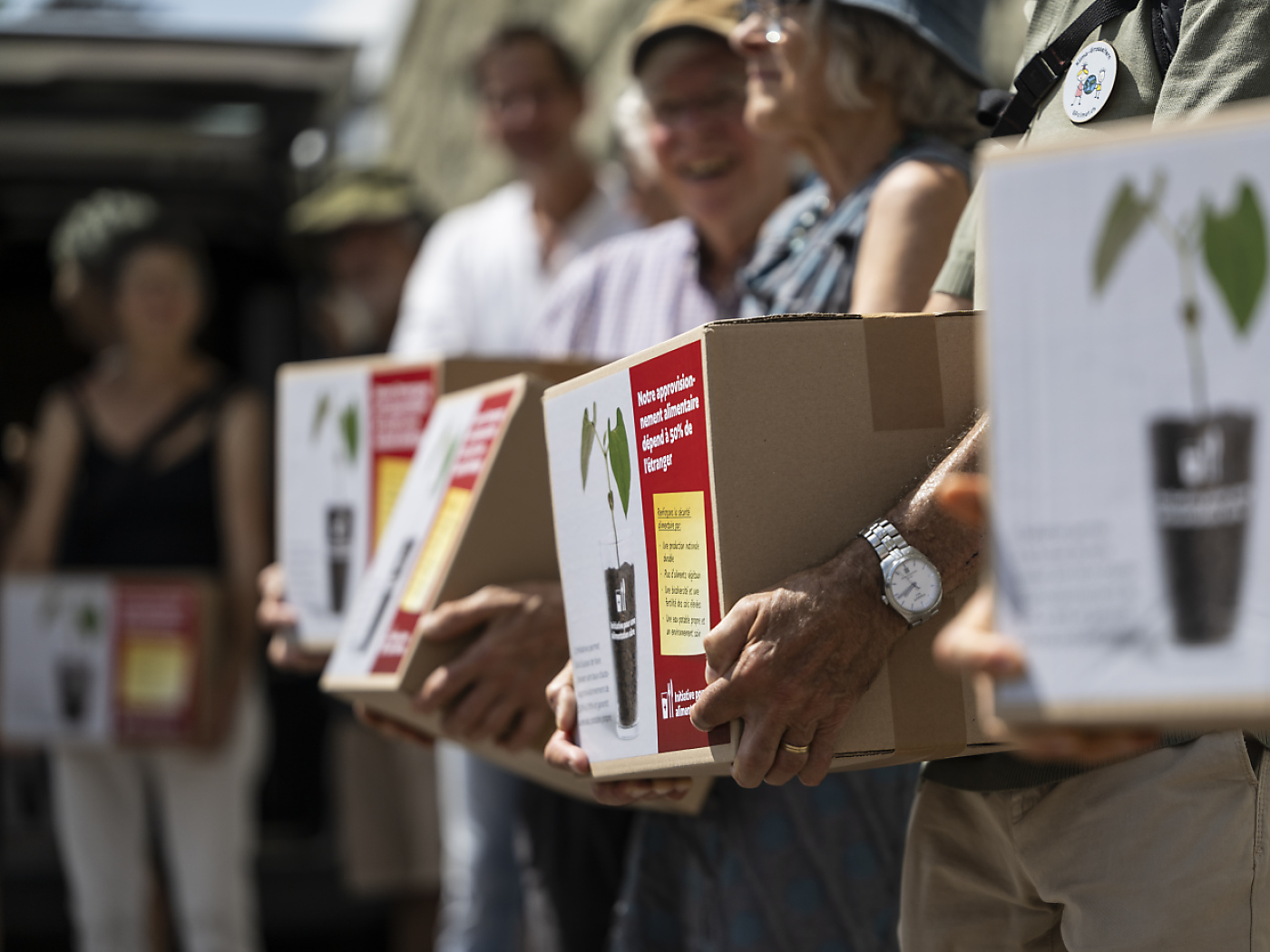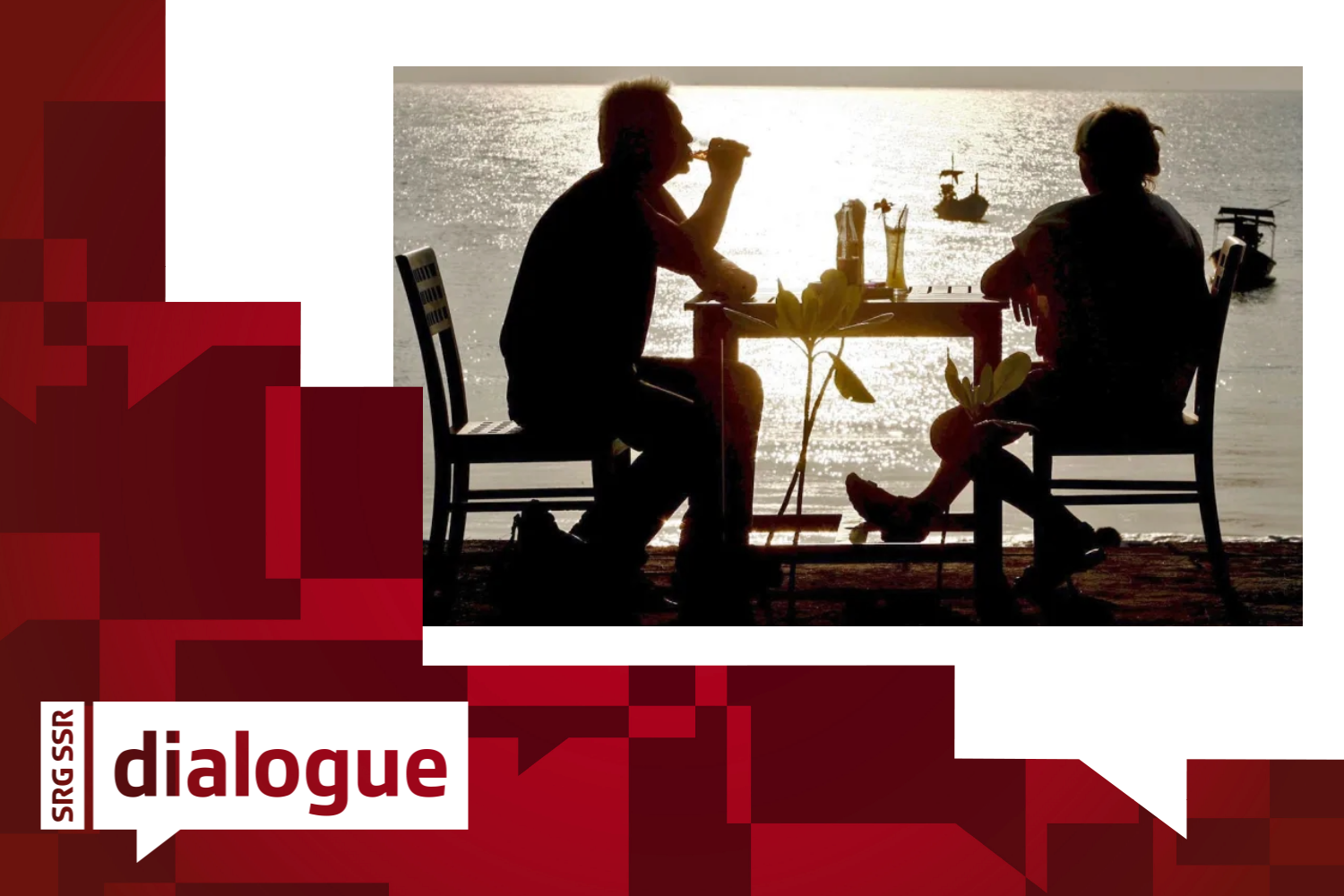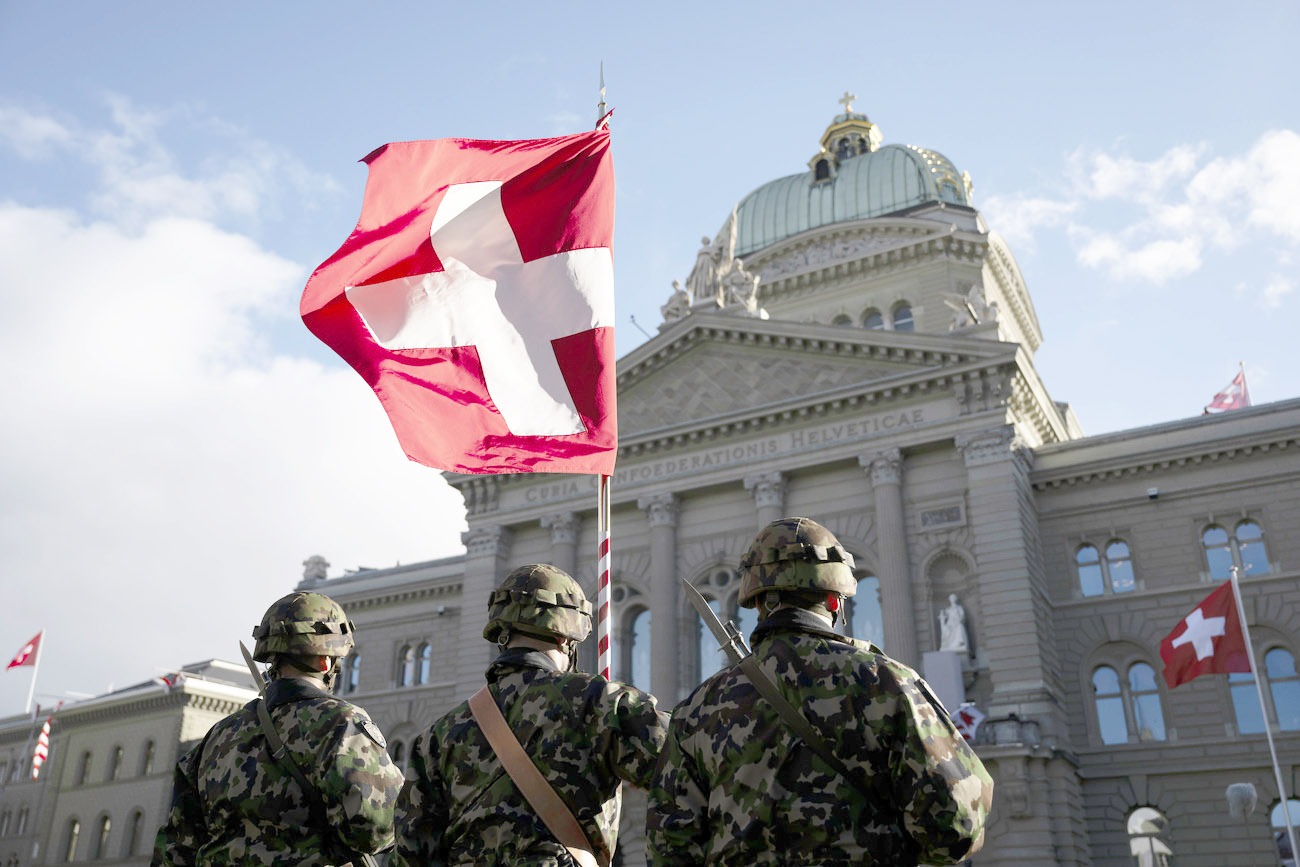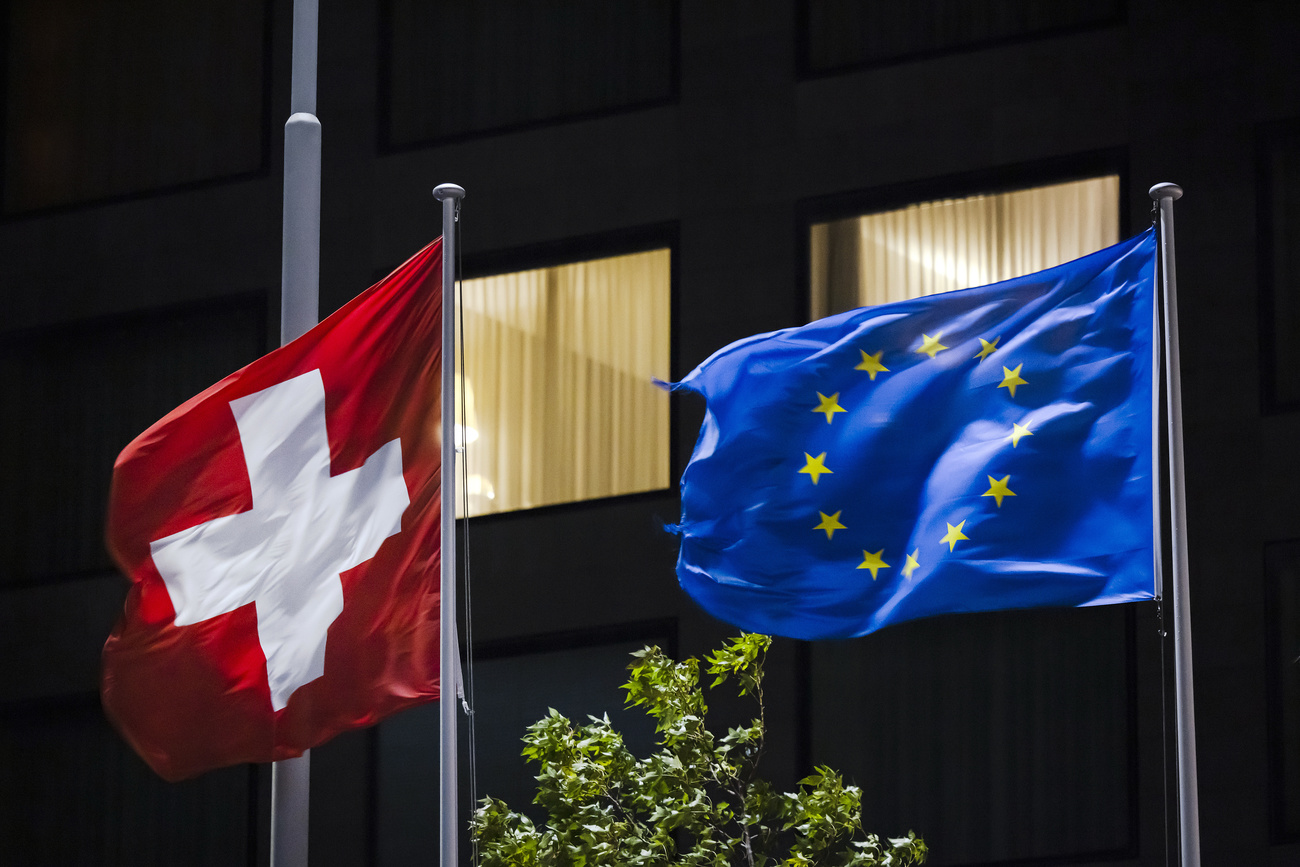
The Week in Switzerland
Dear Swiss Abroad,
Welcome to our selection of some of the biggest stories in Switzerland over the past seven days.
A political voting scandal, satisfaction levels of Swiss Abroad and the (in)ability of Swiss to spot fake news all feature – plus we examine the damage to biodiversity wreaked across the country by arguably Switzerland’s most lethal animal: the house cat.
There’s also our most read story of the week, and a look ahead at the autumn parliamentary session.
THE BIG STORIES OF THE WEEK

The bombshell of the week dropped on Monday when Tamedia newspapers reportedExternal link that companies had faked signatures and fraudulently manipulated popular initiatives and referendums – a cornerstone of Switzerland’s tradition of direct democracy.
The Federal Chancellery, which oversees elections, said it had filed criminal charges with the Office of the Attorney General of Switzerland against unknown people.
In Switzerland 100,000 signatures are needed within 18 months to trigger an initiative, which proposes a change to the country’s constitution, and 50,000 within 100 days for a referendum on laws passed by parliament. If enough valid signatures are collected, there’s a national vote. The Swiss are called to the polls four times a year to vote on various issues, from buying new fighter jets to banning facial coverings.
The Chancellery said it had received indications of false signatures affecting around 12 popular initiatives, but declined to say which.
The Tages-Anzeiger, which first revealed the investigation, said one company had offered to provide a referendum campaign with 10,000 signatures at a price of CHF4.50 ($5.30) each.
Local authorities later found between 35% and 90% of signatures were invalid, much higher than the normal invalidity rate of 8% to 12%, the paper said. Among the problems were addresses of signatories which did not exist, or signatures from people who had not lived in the area for several years, the Tages-Anzeiger said.
Checks of signatures have now been stepped up, while senior lawmakers have also called for the paid collection of signatures to be banned.
“A fiasco for our democracy” declared the Tages-Anzeiger in an editorialExternal link. “There are currently 16 initiatives pending with the federal government that will be put to the people in the next two or three years. Can we be sure on the day of the vote that they have all come about legally? Not in the case of certain initiatives, say experts and those responsible in the cantons,” it wrote.
“It’s all the more irritating that it took a journalistic investigation to bring this problem to light. According to the report, the authorities learnt of irregularities five years ago. They have known for around two years that the number of falsified signatures is growing rapidly.”
The Tribune de Genève agreed. “By refusing to tackle the problem head-on when it first arose, the authorities have allowed the situation to fester. They are now casting doubt on the legitimacy of several votes,” it said in an editorialExternal link. “This is a serious dent in our direct democracy.”
- Our explainer on the “signatures scam” and what it could mean for e-voting.
- Tamedia journalists explain how they uncovered the storyExternal link.
- Should paid-for signatures be banned? A debate on SRFExternal link.

Swiss newspapers also weren’t happy with the results of two state elections in Germany on Sunday. The strong performance of the far right has prompted concern in Berlin as well as in neighbouring Switzerland.
The AfD became the first far-right party to win a state legislature election in Germany since the Second World War with its 32.8% showing in Thuringia. Next door in Saxony it came a close second. Analysts warn that the far right’s growing clout could damage Europe’s largest economy by deterring investors and skilled labour.
“In the German psyche, the trauma is likely to be painful,” reckoned Le TempsExternal link in Geneva. “For the millions of people who marched in cities across the country this spring to denounce the far right, it is an earthquake. […] [Chancellor] Scholz’s government will have to do some introspection. And realise that economic reunification may have succeeded, but the cultural gap between the two parts of the country remains yawning.”
The Neue Zürcher Zeitung (NZZ) explained how things could have been so differentExternal link. “Like so many right-wing parties in Europe, the AfD could have been tamed or its spell could have been broken through integration. Switzerland’s handling of the Swiss People’s Party is a good example. The right-wing party helps to govern the country. On the one hand, this ensures that people who would otherwise turn their backs on politics feel represented by the Federal Council [the seven-person government]. On the other hand, the responsibility moderates and disciplines the People’s Party, which is clearly different in tone and content from the nationalist troublemakers of the AfD.”
However, the NZZ concluded that the political discourse in Germany had become “simply too entrenched” for this kind of pragmatism. “The ‘fight against the right’ has become a kind of state doctrine, even in the centrist camp,” it said.
- Is the Swiss People’s Party far right? A political scientists explains.

“How are you, Switzerland?” That’s the question answered by more than 50,000 people – including 1,000 Swiss Abroad – on various aspects of life. It turns out that the Swiss Abroad are largely satisfied with their lives, although pensioners are happier than those still working.
How can this dissatisfaction among employees abroad be explained? “They seem to experience more pressure at work with less secure working situations and salaries,” said Urs Bieri from research institute gfs.bern, which carried out the second edition of the survey on behalf of the Swiss Broadcasting Corporation (SBC), SWI swissinfo.ch’s parent company.
A third of the Swiss respondents living abroad claimed to be at risk of a burnout. “It’s not just the fear of losing your job or your financial situation but an individually felt pressure that can lead to burnout,” Bieri said.
Another finding was that people in Switzerland are doing well but are more pessimistic about the future than they were a year ago. In this respect, Swiss citizens abroad seem to provide a counterbalance. Although they are just as concerned about international problems such as wars, security and terrorism or climate change as the Swiss population, their perception of Switzerland is generally very positive.
- An overview of the results of the survey.
- The Credit Suisse Worry Barometer 2023External link – what do the Swiss lose sleep over?

How good are you at spotting nonsense in the news and online? It turns out that the Swiss, despite voting on important issues four times a year, aren’t very good at separating fact from fiction.
The OECD’s Truth Quest Survey involved 40,765 participants in 21 countries. The 1,531 participants from Switzerland came third from last (those from Finland, the UK and Norway did best).
The Swiss found it particularly difficult dealing with disinformation, defined as “content created and disseminated with the aim of deceiving”. The Swiss recognised disinformation as false in only 55% of cases – sharing last place with France. They also struggled to recognise content that had been taken out of context in a misleading way (“contextual deception”).
However, some academics criticised the fact that it is not known exactly which sample statements were presented to the participants, and they pointed out that the differences between the countries were pretty small.
- Read our detailed analysis of the study.
- The OECD Truth Quest SurveyExternal link in full.
- Does social media fuel fake news in Switzerland as much as in the US?

Our most read article this week was a study claiming that Swiss basically live in socio-economic bubbles, with few opportunities to meet people of different ages, wealth or educational backgrounds.
Two-thirds of rich and poor people know very few people from the other group, the study revealed. The proportion is the same for the highly educated versus those with no higher education and for German speakers compared to French or Italian speakers. Respondents explained this phenomenon by a lack of opportunities to meet people, rather than a lack of interest. Most respondents believed a more mixed society would enrich them.
- The study, carried out for Migros Culture PercentageExternal link by the Gottlieb Duttweiler Institute.
- Analysis of the studyExternal link, including graphs, by Swiss public television, SRF.
QUIRKY SWITZERLAND
Cats kill millions of birds, frogs and other animals every year in Switzerland, but most politicians – aware that almost half of Swiss households have a pet – are reluctant to do anything about it. Is a “cat moratorium”, banning the importing and breeding of cats for ten years, a realistic solution? Will it make a difference?

More
Feline felons: what to do with Switzerland’s killer cats?
PHOTO OF THE WEEK

THE WEEK AHEAD

The Swiss parliament sits four times a year for three weeks, and the autumn session gets underway on Monday.
Parliamentarians will focus mainly on foreign policy and defence issues. Increasingly parliament wants to know about how foreign countries use their influence in Switzerland. Here’s a preview of what’s on the agenda.
Also on Monday the four prestigious Balzan PrizesExternal link, which recognise scholarly and scientific achievements, will be awarded by the Swiss-Italian International Balzan Prize Foundation. The prizes are each worth CHF750,000 ($890,000), half of which must be used for research.

In compliance with the JTI standards
More: SWI swissinfo.ch certified by the Journalism Trust Initiative








